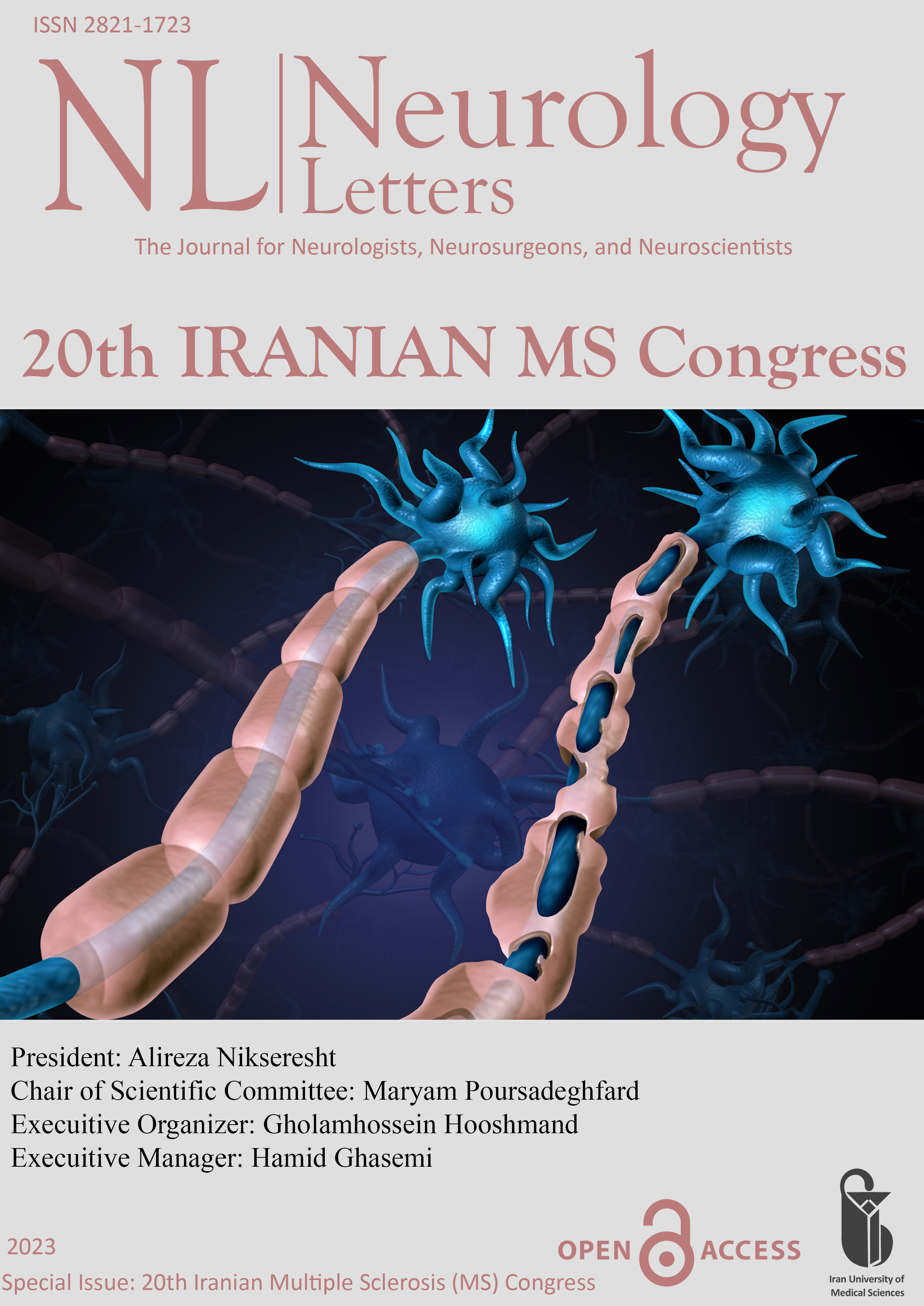Patterns of Attention Deficit in Relapsing and Progressive Phenotypes of Multiple Sclerosis (PP-27)
Document Type : Poster Presentation
Authors
- Farinaz Tabibian 1
- Kiarash Azimzadeh 1
- Vahid Shaygannejad 2
- Fereshteh Ashtari 2
- Iman Adibi 2
- Mehdi Sanayei 3
1 1. Neurosciences Research Center, Isfahan University of Medical Sciences, Isfahan, Iran 2. Center for Translational Neuroscience, Isfahan University of Medical Sciences, Isfahan, Iran
2 1. Neurosciences Research Center, Isfahan University of Medical Sciences, Isfahan, Iran 2. Center for Translational Neuroscience, Isfahan University of Medical Sciences, Isfahan, Iran 3. Department of Neurology, Isfahan University of Medical Sciences, Isfahan, Iran
3 1. Center for Translational Neuroscience, Isfahan University of Medical Sciences, Isfahan, Iran 2. Isfahan Neuroscience Research Center, Isfahan University of Medical Sciences, Isfahan, Iran 3. School of Cognitive Sciences, Institute
Abstract
Behavioral aspects and underlying pathology of attention deficit in multiple sclerosis (MS) remain unknown. This study aimed to clarify impairment of attention and its relationship with MS-related fatigue.
Thirty-four relapse-remitting MS (RRMS), 35 secondary-progressive MS (SPMS) and 45 healthy controls (HC) were included. Results of psychophysics tasks (attention network test (ANT) and Posner spatial cueing test) and fatigue assessments (visual analogue scale and modified fatigue impact scale (MFIS)) were compared between groups.
In ANT, attentional network effects were not different between MS phenotypes and HC. In Posner task, RRMS or SPMS patients did not benefit from valid cues unlike HC. RRMS and SPMS patients had less gain in exogenous trials with 62.5ms cue-target interval time (CTIT) and endogenous trials with 250ms CTIT, respectively. Total MFIS was the predictor of gain in 250ms endogenous blocks and cognitive MFIS predicted orienting attentional effect. Executive attentional effect in RRMS patients with shorter disease duration and orienting attentional effect in longer diagnosed SPMS were correlated with MFIS scores.
The pattern of attention deficit in MS differs between phenotypes. Exogenous attention is impaired in RRMS patients while SPMS patients have a deficit in endogenous attention. Fatigue trait predicts impairment of endogenous and orienting attention in MS.
Keywords
 Neurology Letters
Neurology Letters
